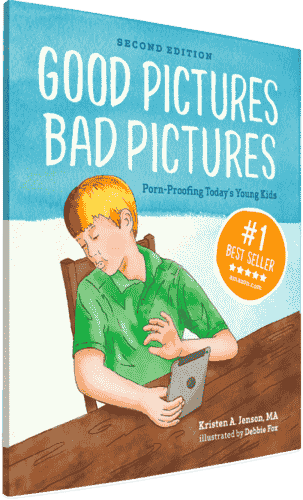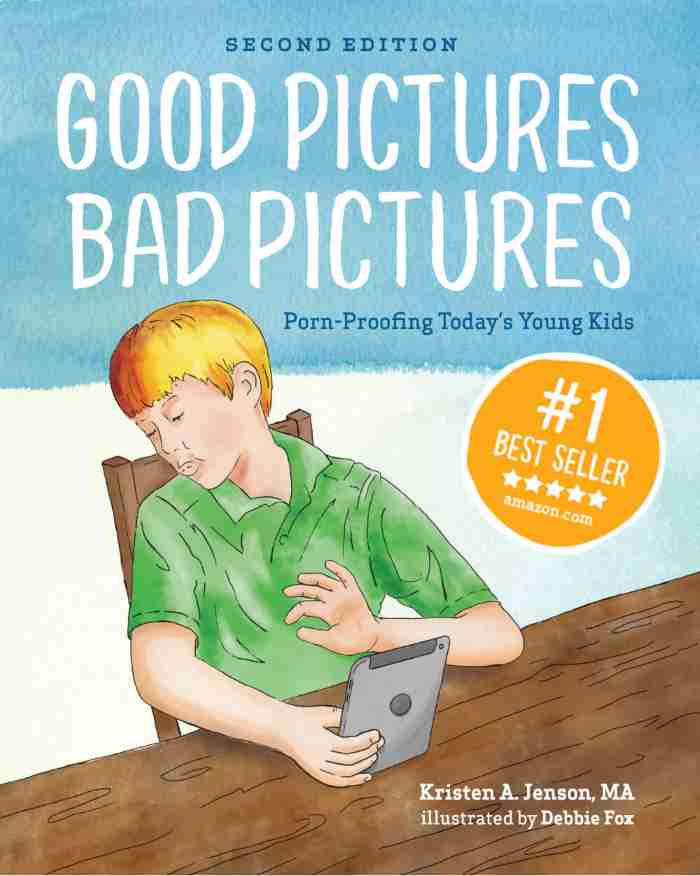

3 Easy (Yes, Easy!) Conversation Starters to Protect Kids Online

They say practice makes perfect, but I say practice makes prepared!
And when it comes to online safety, parents need to be prepared for several different conversations. Here are three easy role plays that will empower your kids to reject pornography.

(We created these role plays for the May 2014 End Sexual Exploitation Summit in D.C. I was honored to be in a panel with Jan Garbett, founder of EPIK, Jennie Bishop, founder of PurityWorks, moderated by Vauna Davis, Executive Director of UCAP.)
Role Play #1: Initiating an introductory discussion about pornography

Scenario: You and your child are looking at a family pictures in an album or on your social media network of choice.
- Cue 1: “These are fun photos of people we love, but do you know there are also very inappropriate pictures on the Internet called pornography? Pornography means disrespectful pictures, videos or even cartoons of people without any clothing on. Have you ever seen pornography?”
- Cue 2: “Sometimes when I’m on the Internet, I’ve accidentally seen pictures that make me feel very uncomfortable. They show naked people treating each other in very disrespectful ways. It’s called pornography. Have you ever seen anything like that?”
- Cue 3: “I really like sharing these pictures with you. Sometimes friends or even family members share very bad or inappropriate pictures or videos that show people without any clothes on. These pictures are called pornography. Have you ever seen anything like that?”
Role Play #2: Discussing your child’s exposure to pornography after they have reported it to you

Scenario: Your child comes to you and asks if they can tell you something that is bothering them.
- Cue 1: “Thank you for telling me about what you saw online. I’m so sorry you were exposed to such inappropriate and horrible images. They are called pornography. I can see we need to talk more about how to keep pornography from hurting you. Can I ask you a few more questions? (Ask where they saw it, on which device, who they were with, how often.)
- Cue 2: “Thank you for having the courage to come and tell me about what you saw. I really appreciate your honesty and how you are working to protect yourself from pornography by not keeping your exposure to it a secret. Would you mind if I asked you a few more questions about what you saw?” (Ask where they saw it, on which device, who they were with, frequency.)
Role Play #3: Discovering your child watching porn or finding a history of porn searches on a device

Scenario: You either come upon your child looking at porn on a device or you discover searches for porn in the history of a device.
- Cue #1: “I see what you’re doing. Please turn it off (and give me the device). I want you to know that I love you, and we are going to work through this together.”
- Cue #2: “I need to talk with you about something. Recently I found some searches and websites for pornography on the iPad (or other mobile device). I’m not mad at you, but I need to understand why they are there. Could you tell me how you first found out about pornography and how long you’ve been looking at it?”
Have you had conversations with your kids about pornography? Do you think these role plays are helpful? Please join the conversation and leave a comment. Thank you!
Other Helpful Resources:
Jeffrey J. Ford, LMFT, has a series of five helpful YouTube videos: The Five Cs: What if my child has been exposed
White Ribbon Week program for schools, created by Deanna Lambson. Teaches kids to make smart choices when using media and technology. Check it out for your school!
Good Pictures Bad Pictures: Porn-Proofing Today's Young Kids by Kristen A. Jenson, MA, illustrated by Debbie Fox. A read-aloud book to educate young kids about the addictive nature of pornography before they're exposed and empower them with an action plan to reject it when they're exposed.
[[CTA]]



Good Pictures Bad Pictures
"I really like the no-shame approach the author takes. It's so much more than just 'don't watch or look at porn.' It gave my children a real understanding about the brain and its natural response to pornography, how it can affect you if you look at it, and how to be prepared when you do come across it (since, let's face it... it's gonna happen at some point)." -Amazon Review by D.O.








